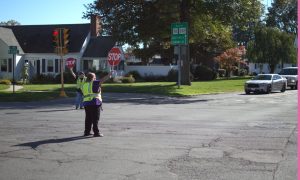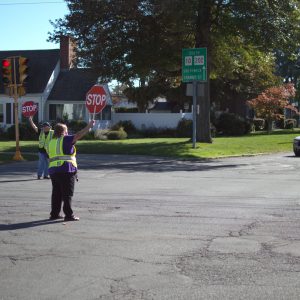WESTFIELD – The city is evaluating changes to increase the efficiency and control the cost of one of the most basic municipal services provided to city residents, solid waste collection and disposal.
The solid waste disposal program is composed of several elements, rubbish and recycling collection, performed by the Department of Public Works and operation of the Twiss Street transfer station for disposal of both recycled materials and rubbish, a function performed by the Health Department.
Shortly after Mayor Daniel M. Knapik was elected to office a blue-ribbon committee was established to perform an in-depth review and examination of the solid waste program elements. Knapik asked that panel, composed of City Councilors, city officials and citizens, to determine the answer to a basic question: maintain the solid waste program as a municipal function or outsource to private solid waste management companies?
The committee requested proposals from private vendors for each element of the program, rubbish and recycling. The vendors also expressed considerable interest, as well, in operating the transfer station.
The panel, after performing a cost-benefit analysis of the city-run program compared to the privatization of the program, recommended solid waste be maintained as a city function.
However the committee, chaired by Ward 6 Councilor Christopher Crean, made a number of recommendations to improve the program.
One major change is currently underway. The panel reported that the transfer station is underutilized and if expanded could generate substantial revenue for the city. The city is now in the process of petitioning the Department of Environmental Protection for a revised permit to allow the city to increase the tonnage moving through the facility by threefold, to near 150 tons a day.
One of the factors being assessed by the DEP as it reviews the city’s is what steps the city is taking to reduce the tonnage of rubbish collected daily and increase the tonnage of recycled materials, both of which are directly linked and which are in the best interest of city residents because less rubbish generation translates into avoid of the cost of terminal disposal at facilities outside the city.
The committee also made a recommendation consistent with that goal, converting from the double-stream recycling method, collecting paper and cardboard in one bin and glass, metal and plastic in a second bend, to a single stream program where all recycled materials go into one container, a wheeled barrel similar to those now used for solid
waste collection.
Health Director Michael Suckau said the city is currently in discussion with the Materials Recovery Facility (MRF) in Springfield to convert the city’s recycling program to the single-stream approach when the new contract is enacted. Suckau said “there are benefits, including financial, to both approaches, how we’re charged and reimbursed. But the single stream is more convenient for citizens, so we’re anticipating a boost in the (volume) of recycling with a more efficient collection option.”
Public Works Director Jim Mulvenna, who has been pushing the recycling collect to the single-stream program, said the up-front expense will be purchasing a new wheeled barrel for the 13,170 households where municipal rubbish and recycling is performed. Mulvenna said that cost is about $665,000, but could be accomplished through a number of financing avenues, such as bonding or lease-to-own programs which spread the cost over a number of years. The rubbish barrels were purchase over seven years at an annual cost of $120,000, Mulvenna said.
Knapik said that what will pay for the program is lower rubbish contractor fees for terminal disposal of solid waste hauled out of the city.
“If we can knock down the trash contract by a third, we’d be saving $330,000,” Knapik said. “We’ll have to look at the whole program to decide which department floats a bond to purchase the new barrels.
“I’d like to see the 90 gallon barrels switched to recycling and new 65 gallons barrels used for trash collection,” he said. “Give people more room for recycling and less for trash.”
Mulvenna said that the city is purchasing a new rubbish truck fleet which have camera-operated articulated arms and that the current trucks, which have a simple mechanical arm, could be converted to the single-stream recycling.








